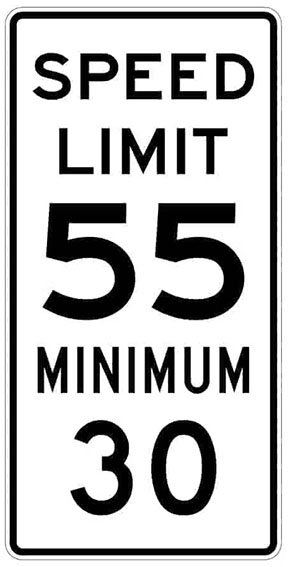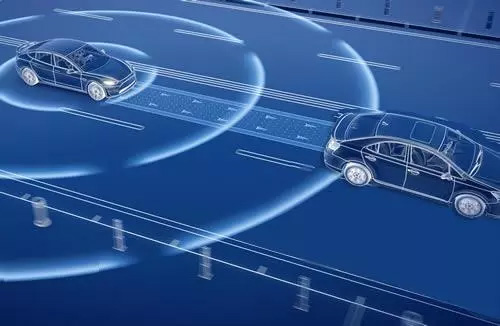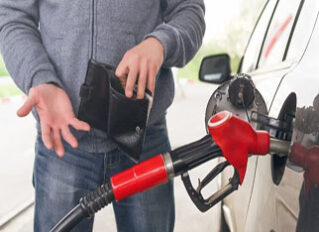In today’s world, where the cost of fuel seems to constantly fluctuate, finding ways to save on fuel expenses has become a top priority for many motorists across the UK. The frustration of watching fuel prices soar can be overwhelming, but fear not! With the right knowledge and a few simple adjustments to your driving habits, you can significantly reduce your fuel consumption and save money at the pump. In collaboration with the Energy Saving Trust, we’ve compiled the ultimate guide to economical driving, designed to help you increase your miles per gallon (mpg) and keep more money in your pocket.
1. Regular Vehicle Maintenance
One of the fundamental ways to improve fuel efficiency is by ensuring your vehicle is properly maintained. Regular servicing and maintenance not only keep your car running smoothly but also enhance its overall efficiency, leading to improved fuel consumption. Be sure to schedule routine service appointments, and consider consulting a RAC Mobile Mechanic or visiting one of our RAC Approved Garages for expert assistance. Additionally, maintaining the correct tire pressure is crucial, as underinflated or overinflated tires can negatively impact fuel economy. Refer to your owner’s manual for the recommended tire pressure, and adjust accordingly based on your vehicle’s load.
2. Gentle Driving Techniques
 Gentle driving techniques are paramount when it comes to saving fuel. By adopting a mindful approach to acceleration and deceleration, you can greatly enhance fuel efficiency. It’s crucial to refrain from excessive speeding, as higher velocities invariably translate to heightened fuel consumption. Instead, strive to maintain a steady pace within the confines of the speed limit.
Gentle driving techniques are paramount when it comes to saving fuel. By adopting a mindful approach to acceleration and deceleration, you can greatly enhance fuel efficiency. It’s crucial to refrain from excessive speeding, as higher velocities invariably translate to heightened fuel consumption. Instead, strive to maintain a steady pace within the confines of the speed limit.
Additionally, aim to operate your vehicle in the highest attainable gear, as this minimises engine revs and maximises fuel economy. While the precise speed for optimal fuel efficiency may vary depending on your vehicle’s make and model, consistency in driving style is key. Avoid abrupt changes in acceleration, as they can disrupt the flow of fuel consumption. By embracing these gentle driving habits, you can make tangible strides towards improving your vehicle’s miles per gallon, ultimately leading to significant savings at the fuel pump.
3. Anticipate and Maintain Momentum
Anticipating upcoming traffic scenarios and road impediments is a strategic approach to sustaining momentum and curbing fuel usage. By proactively observing the flow of traffic and potential road hazards, you can adeptly navigate your vehicle while preserving kinetic energy and mitigating the need for excessive acceleration and braking. When encountering inclines, employing a gradual acceleration technique prior to ascending can effectively harness existing momentum, thereby minimising the additional fuel required to conquer uphill terrains.
Vigilance regarding traffic signals and roadway conditions ahead empowers you to modulate your speed appropriately, facilitating a seamless and uninterrupted driving experience. The overarching objective is to maintain a fluid and uninterrupted motion of the vehicle, thereby optimising fuel efficiency throughout the journey. By integrating these anticipatory driving practices into your daily commute, you can significantly reduce fuel consumption and contribute to both cost savings and environmental conservation.
4. Effective Use of Cruise Control
 Using cruise control can significantly enhance fuel efficiency during long-distance journeys. While this feature proves invaluable for sustaining a steady velocity on level roads, its effectiveness can be compromised on hilly terrains. As such, it makes sense to use cruise control primarily on motorways, where maintaining a consistent speed leads to optimal results. However, exercise caution when driving up inclines, as cruise control’s delayed response to gradient alterations may inadvertently escalate fuel consumption. By carefully integrating cruise control into your driving, particularly during extended journeys along flat surfaces, you can give yourself the best chance of saving fuel and driving as economically as possible.
Using cruise control can significantly enhance fuel efficiency during long-distance journeys. While this feature proves invaluable for sustaining a steady velocity on level roads, its effectiveness can be compromised on hilly terrains. As such, it makes sense to use cruise control primarily on motorways, where maintaining a consistent speed leads to optimal results. However, exercise caution when driving up inclines, as cruise control’s delayed response to gradient alterations may inadvertently escalate fuel consumption. By carefully integrating cruise control into your driving, particularly during extended journeys along flat surfaces, you can give yourself the best chance of saving fuel and driving as economically as possible.
5.Minimise Wind Resistance
Reducing wind resistance is key to improving fuel economy. Remove roof bars and roof boxes when not in use, as they create drag and increase fuel consumption, particularly at higher speeds. According to the Energy Saving Trust, even empty roof racks can significantly impact fuel efficiency, so be sure to remove them when not needed. Additionally, driving with windows open can increase drag, further reducing fuel efficiency.
6. Limit Use of Air Conditioning and Heating
During the winter months, getting into your car can mean having to put up with the cold. It’s not comfortable or safe at times, but the desire to put on the heating can get the better of you. The same can be said for air conditioning. During the winter months, the cooling air can make for comfortable journeys but this comes at a cost.
While it’s tempting to rely on air conditioning and heating for comfort, excessive use can lead to higher fuel consumption. Use air conditioning and heating sparingly, opting for natural ventilation whenever possible. Dress appropriately for the weather to reduce the need for climate control inside the vehicle, helping to conserve fuel and save money in the long run.
7. Combine Journeys and Maintain Engine Warmth
Consolidating multiple trips into one and minimising cold starts can improve fuel efficiency by allowing the engine to operate at its most efficient temperature. Plan your journeys efficiently to reduce unnecessary driving and avoid frequent cold starts, which can increase fuel consumption. Keeping the engine warm by minimising idle time and maximising continuous driving can help optimise fuel efficiency, as demonstrated by the RAC’s Record Road Trip achievement.
8. Lighten the Load
 Lastly, reducing excess weight in your vehicle can contribute to improved fuel economy. Remove unnecessary items from your boot or trunk to lighten the load and reduce fuel consumption. While the impact of weight reduction may be modest, every bit counts when it comes to maximising fuel efficiency and saving money on fuel costs.
Lastly, reducing excess weight in your vehicle can contribute to improved fuel economy. Remove unnecessary items from your boot or trunk to lighten the load and reduce fuel consumption. While the impact of weight reduction may be modest, every bit counts when it comes to maximising fuel efficiency and saving money on fuel costs.
By implementing these practical tips and techniques, you can become a more fuel-efficient driver and reduce your dependence on costly fuel purchases. Remember, small adjustments to your driving habits can yield significant savings over time, allowing you to enjoy more miles on the road without breaking the bank. So, take control of your fuel consumption today and start saving at the pump!



